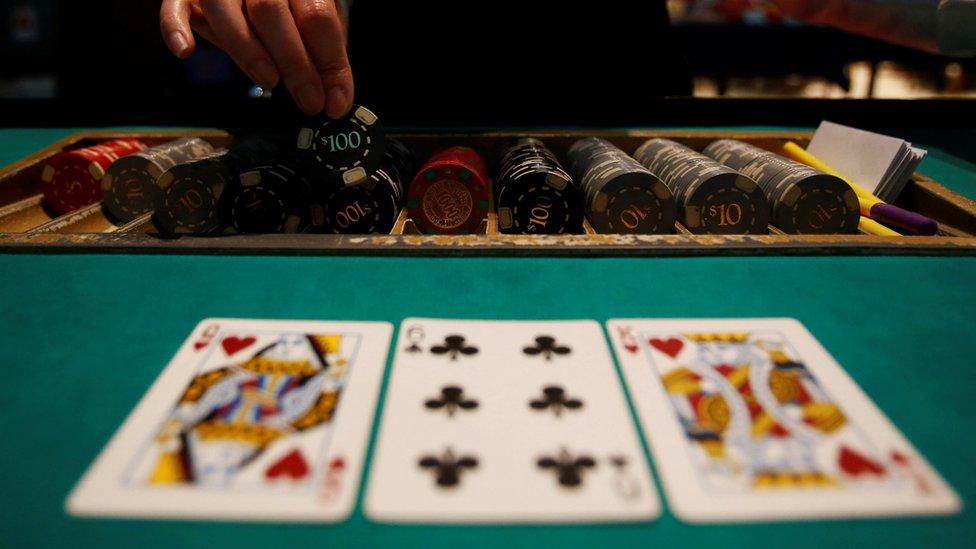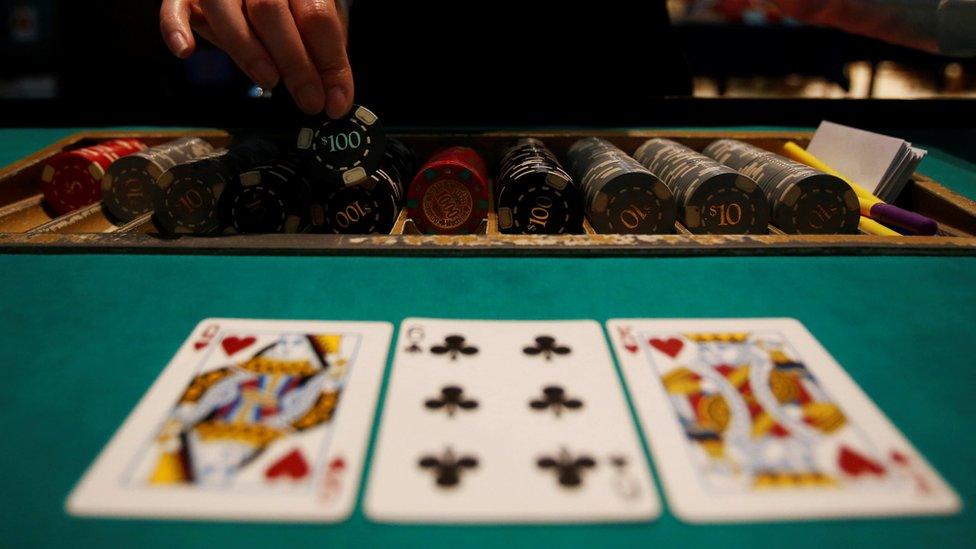Japan parliament legalises casinos
- Published

Japan's parliament has passed a long-awaited law to legalise casinos.
The move paves the way for casino resort developments that also include hotels and shopping centres.
International gaming firms including Wynn Resorts, MGM Resorts and Caesars have expressed an interest in running businesses in Japan.
Casino operators are keen to find new markets, especially those in close proximity to China.
Politicians in Japan's lower house approved the bill in the early hours of Thursday. It had already been passed in the upper house.
The move was backed by Prime Minister Shinzo Abe, who believes the changes will stimulate tourism and help the country's flagging economy.
But with legislation still needed on how to regulate the sector, casinos are not expected to open for at least another six years.
Addiction fears
An estimate by Daiwa Research Institute suggests that just three casinos in Japan could earn annual profits of $10bn.
But it added that Japan would also have to differentiate itself to attract gamblers in Asia who already can choose to visit casinos in Singapore, Macau, the Philippines, and South Korea.
Politicians have clashed over plans to legalise casinos in Japan for the past 15 years, with strong opposition based largely around fears of gambling addiction and other social fall-out such as organised crime.
And pro-casino campaigners have had to try and allay fears about the negative impact of casinos, promising measures to combat addiction and money laundering.
An opinion poll by public broadcaster NHK found 44% of those questioned opposed the plans, with just 12% supporting it and 34% of respondents undecided.
Casinos are currently illegal in Japan, though gambling on horse, boat and bicycle races is allowed through government-backed bookmakers.
The most common form of gambling in Japan is Pachinko, the country's take on pinball. Played in parlours across Japanese towns and cities, the game is tolerated despite its legal status remaining vague.

Why is Japan's casino law so unpopular? Analysis by Mariko Oi, BBC News
The prospect of casinos in Japan has been on the cards for years. But there doesn't seem to be any public clamour for it. A survey by Japan's public broadcaster NHK showed that only 12% supported the law.
Critics argue it will result in gambling addiction. The law's supporters, however, say that given how prevalent Pachinko parlours are, if addiction is an issue, then it already exists.
Perhaps a more pertinent question is whether casinos are a good bet or if the profit predictions are wildly over-optimistic.
With China's economy slowing down and the authorities cracking down on luxury spending, the numbers of Chinese gamblers visiting to the region's other casinos in Macau and Singapore have fallen in recent years.
And the recent arrest of Crown Resorts staff in China is a sobering reminder of how seriously Beijing is taking laws banning casino operators from trying to lure Chinese gamblers overseas.
It's true that Japan has plenty of wealthy people who may like to play the roulette tables. And perhaps for some foreign tourists the prospect of a game of blackjack at a luxury resort will be another reason to visit the country beyond experiencing bullet trains and cherry blossom. But will that be enough to make a success of casino developments?
- Published14 December 2016

- Published19 October 2016
